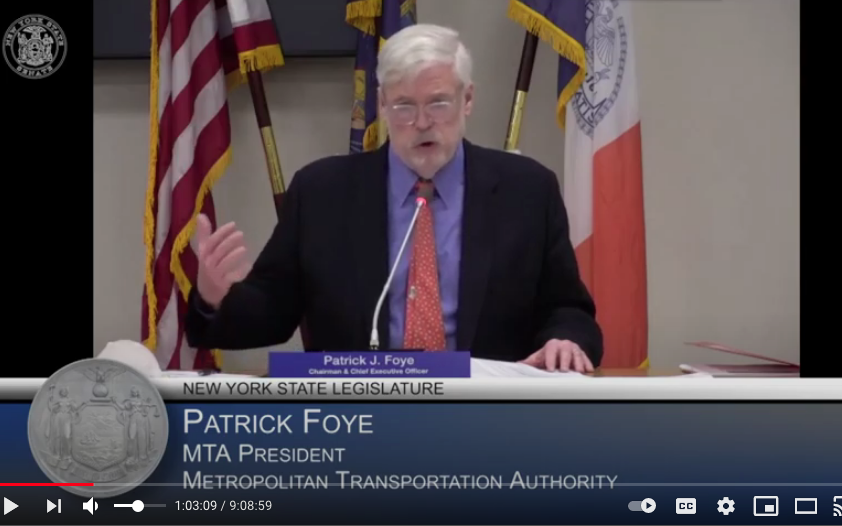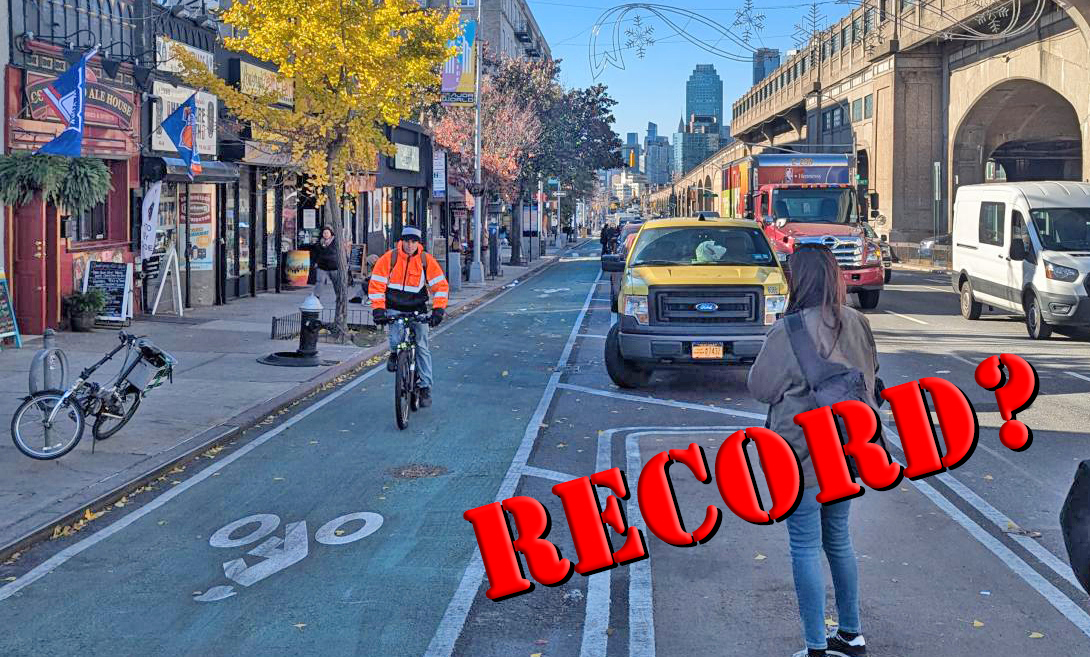Who's driving this train?
No one knows who's going to be in charge at the MTA after July, as legislative pushback has thrown a red signal on Gov. Cuomo's plan to reorganize the agency's leadership even as CEO and Chairman Pat Foye plans to leave the authority at the end of the month.
Wednesday's MTA board meeting is slated to be Foye's last, it was announced in June, when Cuomo disclosed his intention of putting Foye in charge of the Empire State Development Corporation and replacing him with a tag team: New York City Transit interim president Sarah Feinberg as the board chairwoman and MTA Chief Development Officer Janno Lieber as the CEO.
But Cuomo's plan, announced days before the end of the 2021 legislative session, depended on the legislature passing a bill that would allow him to hire and fire the CEO, giving him effective control of the official running the agency's day-to-day operations. Even after Cuomo agreed to empower the state Senate to approve his CEO nomination, the bill stalled, and state Senate Democrats don't sound in any rush to return to Albany.
"We're always open to come back, but there's no plans to do so in the immediate future," state Senate Democratic spokesman Mike Murphy.
A leadership void at the top of the MTA is never a welcome situation, but it would come at as bad a time as ever in 2021. The agency is still navigating its way out a of a pandemic-related ridership drop that decimated the operations budget and would have led to massive cuts were it not for a massive federal aid package. Even with federal support keeping the MTA afloat until 2024, the transit agency is dealing with subway and bus ridership that's only about half of what it was before the pandemic and an uncertain future for office work means commuters may not fill the MTA's coffers like they once did. The agency also still needs to complete its environmental assessment for congestion pricing, and ensure that it can finish the historic $51 billion capital plan meant to finally modernize the creaky infrastructure upholding the region's mass-transit system.
As is true every year, some legislative priorities do not pass in the end-of-session rush; this year, for example, the Legislature failed to approve a criminal-justice bill that would seal misdemeanor and felony records for eligible New Yorkers. But sources said Democrats do not relish the prospect of returning to Albany and giving the governor a win on the bill splitting the MTA leadership, especially after Transportation Workers Union President and MTA Board Member John Samuelsen came out against the bill this month.
"MTA can't explain why this restructuring is beneficial or for the public good ... Hearings make total sense," Samuelsen tweeted in support of transit and government watchdog groups' opposition to rushing through the job-splitting plan.
@MTA can’t explain why this restructuring is beneficial or for the public good . Riders and workers deserve better then seemingly arbitrary and whimsical last second decisions by .@NYGovCuomo, that could negatively the future of the entire region. Hearings make total sense. https://t.co/4nHVDEWTV5
— John Samuelsen (@TwuSamuelsen) July 7, 2021
The agency tried just such a restructuring in 2005 and abandoned it in 2009 after a commission to fix the authority recommended recombining the jobs.
In media appearances, Feinberg has made the case that the chair/CEO job is big enough for two people, and has laid out a vision that would see Lieber handle the day-to-day operations while she would tackle big-picture questions about the agency's direction. But the job split still leaves questions about who is in charge in the case of a disagreement, what the job responsibilities are, and even how the move would affect who would take over for Lieber as the head of the MTA's capital construction effort. Those questions could be answered with hearings on the bill and the nominations of both leaders, but the MTA seems to be pushing for a whirlwind confirmation of the pair.
"At this crucial time for the region, when businesses are preparing to bring employees back, schools are set to reopen, and more and more people are returning to the transit system, we need to continue to have strong leadership in place so the MTA can keep leading the city's recovery," said a senior advisor to the MTA chairman & CEO, Ken Lovett. "We urge the Senate to quickly pass the bill to split the board chair and CEO positions and then confirm Sarah Feinberg as chair and Janno Lieber as CEO."
The push is not being received warmly.
"This is called benevolent paternalism, 'I know what's best. So you should do it for me,'" one transit advocate said in response to the MTA's insistence that legislators remake the agency's leadership roles in less than two weeks.
If the state Senate pushes off a return to the Capitol, state law allows the governor to appoint an interim chair and CEO for six months, which conveniently is about as much time as there is until the legislature is supposed to come back to work.
Lisa Daglian, the executive director of the Permanent Citizens Advisory Committee to the MTA, said that there's room for reflection and learning amid the chaos.
"This is this is a big decision, this is like, 'Who are you going to marry?'" she said. "It's really important that the MTA has strong leadership going forward." Still, she said, if the Legislature does not meet by the end of July, then an interim chair and CEO need to be appointed immediately, and hearings should be held to to determine what's in the best interest of the riders, the MTA and its operating agencies.
"It's going take a little time to make that decision, so if we have six months of a strong interim chair who knows the agency," she said, "then that will give the MTA and the riders stable footing as the future is being determined."






